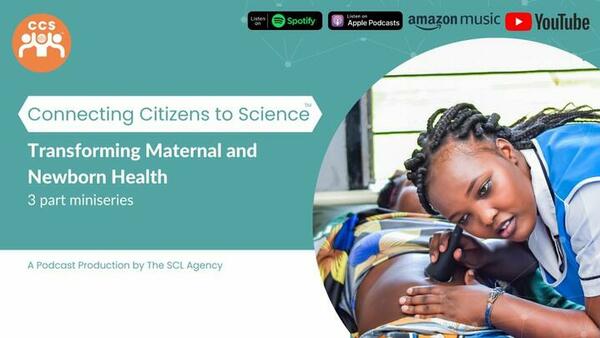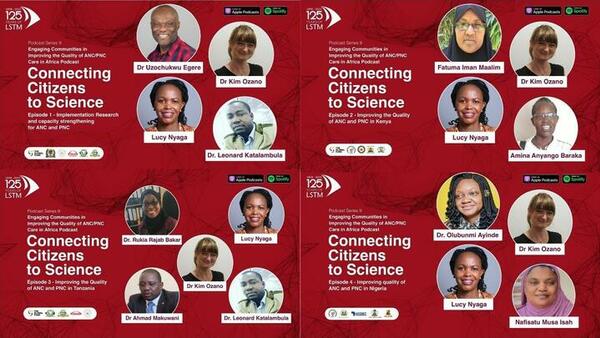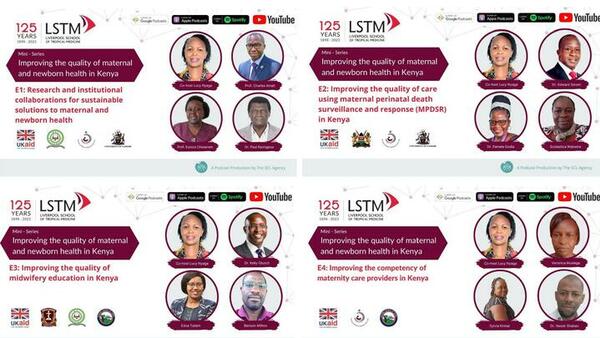
Public Engagement - Podcast Series
Dissemination and communication of research is an integral part of any research project to help increasing the visibility of research outputs, public engagement in science and innovation, and build confidence of society in research.
In the recent past, podcasts have gained prominence as communication and dissemination platforms that reach a wide variety of audience. To enhance the coverage of dissemination of research findings, methods and approaches employed to improved Maternal and newborn health outcomes, the EmOC&QoC Unit has partnered with Connecting Citizens to Science podcast, a platform that offers opportunity to a wide range of stakeholders and communities to discuss ways in which people and communities connect with research and science.
Podcast miniseries "Transforming Maternal and Newborn Health"
The final year of the Quality Improvement for Integrated HIV, TB, and Malaria Services in Antenatal and Postnatal Care programme, funded by Takeda Global CSR program through The Global Fund, offers a unique opportunity to reflect on the achievements, challenges, and future directions. Building on the discussions from the the previous podcasts series "Engaging Communities in Improving the Quality of ANC/PNC in Africa" , this miniseries underscores the importance of sustainability, including the need for sustainable financing and national and sub-national ownership of programme impact. We chose this platform to actively engage stakeholders, including policymakers, health professionals, donors, researchers, academic institutions and communities, to share insights and promote sustainable actions, recognising their pivotal role in shaping the future of maternal and newborn healthcare.
Podcast mini-series, ‘Engaging communities in Improving the Quality of Antenatal and Postnatal care in Kenya, Nigeria and Tanzania,’ focuses on the work being delivered under the Quality Improvement for Integrated HIV, TB and Malaria services in Antenatal and Postnatal Care’ programme, which is funded by the Global Fund(link is external)(opens in a new tab) with financing from Takeda Pharmaceuticals(link is external)(opens in a new tab)
In four episodes, policy makers from local Ministries of Health, health professionals working in health facilities and local research leaders from collaborating universities discuss how LSTM's EmOC&QoC Unit is realising the aims of the programme.

This mini-series is shining a spotlight on the Programme 'Improving Quality of Maternal and Newborn Health in Kenya' which has run for the past five years and was funded by the Foreign, Commonwealth and Development Office (FCDO). The programme aims to reduce maternal and neonatal mortality in Kenya by providing support to develop, monitor and sustain successful strategies to improve the quality of maternal and new-born health and healthcare services.
In each of the four episodes we will be discussing different ways that the programme has strengthened the capacities of health practitioners to deliver high quality care, to reduce maternal and newborn morbidity and mortality.


